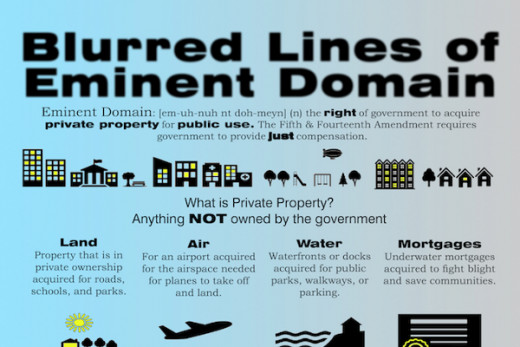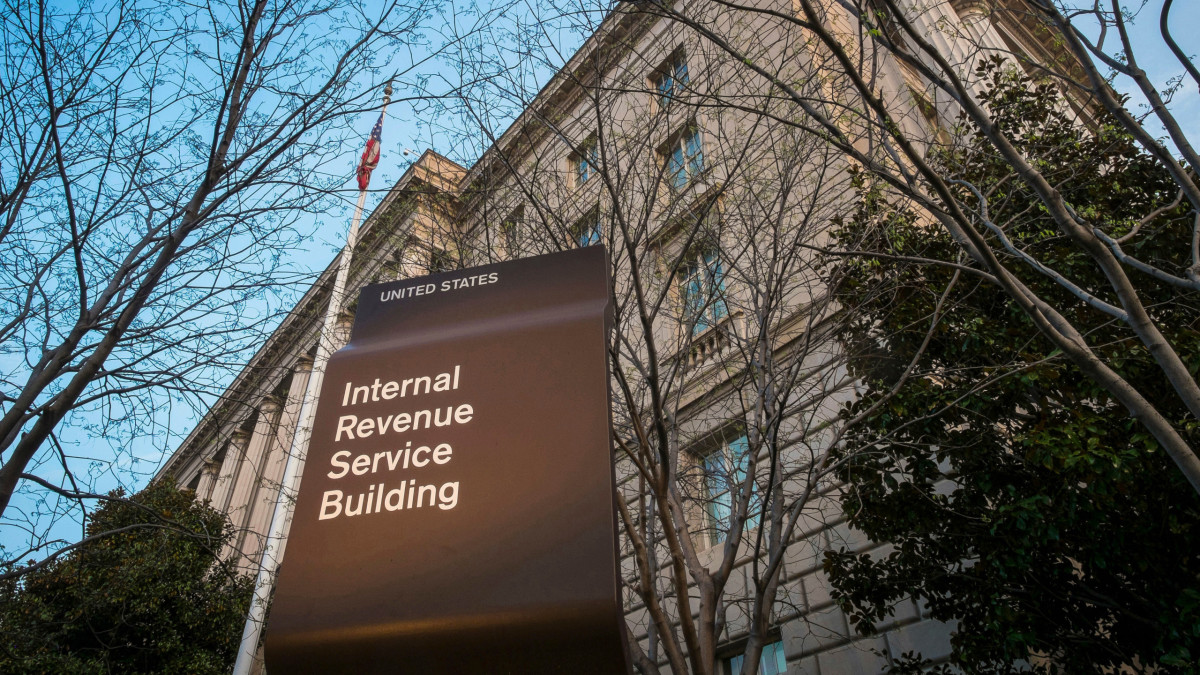Eminent Domain and How It Affects the American People
According to American Law Institute-American Bar Association, the definition of eminent domain is “The power to take private property for public use by a state, municipality, or private person or corporation authorized to exercise functions of public character, following the payment of just compensation to the owner of that property.” In plain language, this means that the government has the constitutional authority to take land from property owners in order to use the space for public good. Eminent domain allows the government to use confiscated property to build hospitals, schools, highways, and other public services, as long as it pays the previous owners whatever the property is worth. However, many Americans believe that what the government considers being ‘just compensation’ is not always what it appears to be.

Government Authority to Confiscate Your Home
Eminent domain is granted to the government by the 5th Amendment of the US Constitution, and allows the government to use policy power if necessary to obtain a property. There are many kinds of property which are subject to this policy, including land, water, and even airspace. When the government believes that it needs a particular property for the public good, it begins procedures called condemnation proceedings. However, property owners have a right to be heard at these proceedings because of American’s right to due process under the law.
The important thing is for the government to meet the four specific criteria for eminent domain;
- Must be owned property
- Must be acquired by the government
- Which will be utilized by the public good
- Owner must be justly compensated.
The federal government has imposed certain requirements for just compensation, such as ensuring that the previous owner is able to purchase a comparable property within the community. However, there have been many reported cases of eminent domain abuses by the government for financial gain.
Some districts and smaller governments have used eminent domain to contract certain property to developers and independent contractors. Most governments and particularly the officials responsible for the abuses get away with their crimes because of the idea behind eminent domain; any action that increases the value of the land is sufficient for public use.
How do you feel about eminent domain?
Abuses of Eminent Domain
One particular example of this injustice occurred in 2002 in Long Branch, NJ. During this time, the government proposed several redevelopment projects to try to improve the seaside community. Many lifelong residents were evicted from their homes under the premise that there would be development to improve the aesthetic and financial environment of the community. Instead, a large block of condos and several high end shops and restaurants were built, blocking the seaside view for many residents who were not part of the zoning project and removing dozens of families from their homes.

Residents explained that they were “more than willing” to renovate their homes to increase property value and improve the community, but the local government had already made up its mind. Some residents were paid as little as $140,000 for seaside properties that were later estimated by private inspectors to be worth almost twice as much. After the citizens were evicted, the large condos went up, and the community gained what came to be known as ‘the biggest eyesore of the Jersey Shore.’
The government emerged as a sort of hero, bringing in business and wealthy investors into a community that had taken a financial hit in recent years. Instead of the middle-class life-long residents that had contributed so much to the area over the years, politicians now observed wealthy renters and tourists who poured money into the new businesses and by proxy, into the pockets of the corrupt government officials. Eminent domain abuses occur each year in a variety of communities, and many argue that anyone’s community could be at risk.

There are valid arguments on both sides of the argument for and against the government’s rights to eminent domain. Many argue that it is necessary, and that the hospitals, parks, and schools built through this property confiscation speak for themselves. Others say that it is a gross injustice and a flagrant abuse of the government’s power, which can be seen through the people who are removed, sometimes forcibly, from their family homes, which often have more value than simply its financial assessment.








